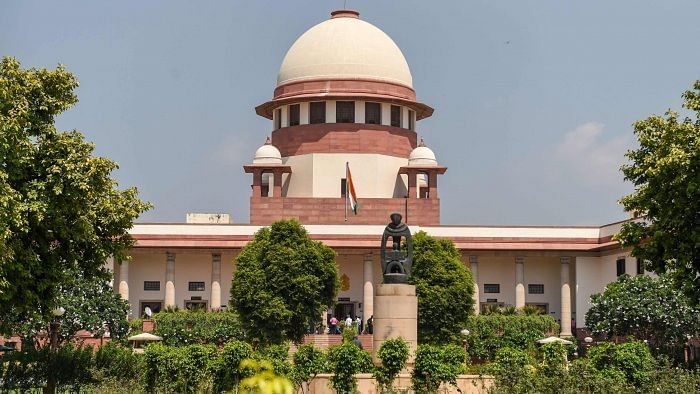
The Supreme Court on Tuesday said that it can't issue a blanket stay on proceedings before different courts related to religious places as it granted further time to the Union government to clarify its stand on pleas challenging validity of the Places of Worship Act, 1991.
The law in question mandated the maintainance of the status of religious places as they prevailed on August 15, 1947. Its validity has been challenged in a batch of petitions for "taking away the rights of Hindus, Jains, Buddhist and Sikhs to restore their places of worship and pilgrimages, destroyed by invaders”.
Taking up the matter, a bench led by Chief Justice of India D Y Chandrachud said there is no stay on the 1991 law for maintaining the status of religious places. However, the court cannot issue a blanket stay on proceedings launched in various courts across the country related to religious places. Notably, the matters related to the Kashi Vishwanath temple and the Krishna Janmabhoomi have been entertained by district courts.
In the instant matter, the court had issued a notice on March 12, 2021 to the Centre on a plea filed by advocate Ashwini Kumar Upadhyay. The Centre has since then repeatedly sought time to clarify its stand on the contentious issues.
On Tuesday, Solicitor General Tushar Mehta submitted, "I'm conscious of the fact that I have sought time for this before but it (Centre's response) is under consideration. Central government needs more time to file it".
After hearing Mehta’s submissions, the bench, also comprising Justices P S Narasimha and Manoj Misra said, "having regard to ramifications of the case, let counter affidavit be filed by Centre till October 31, 2023".
BJP leader Subramaniam Swamy, one of the petitioners, submitted that the Centre is seeking adjournment after adjournment. He asked the court to post the matter for final hearing. The court, however, said that it would need to see the Centre's affidavit first.
Advocate Vrinda Grover, appearing for a party opposing the plea, contended the Centre may be granted more time to file its response, but the top court should clarify that the 1991 Act should be effectively implemented, as petitions across the country are being filed in courts with regard to several religious structures - due to the pendency of the matter here.
The bench then said that there is no stay on the 1991 law.
"There is no stay on the Act. Mere pendency of proceedings doesn't mean there is a stay. We cannot stay proceedings before courts without knowing what those are," the bench said.
The court said it would proceed after filing of the counter affidavit by the Union government.
In his plea, Upadhyay contended that the 1991 Act had put a retrospective cut-off date of August 15, 1947, mandating maintaining the character of religious places and barring any court to take up any petition except the Ram Temple at Ayodhya.
